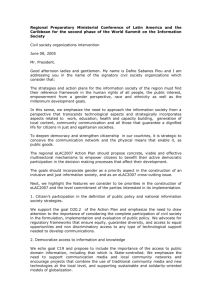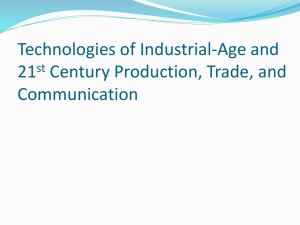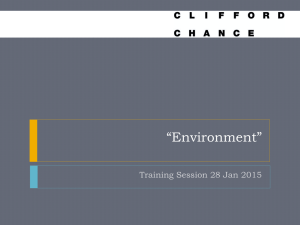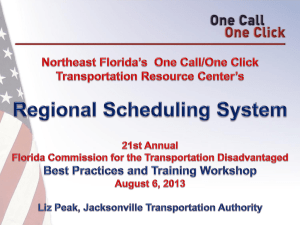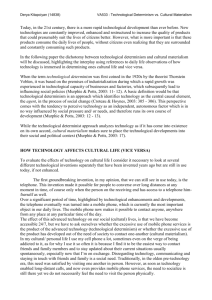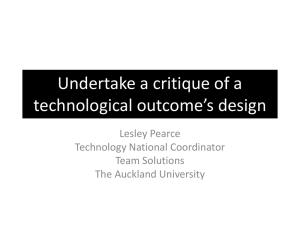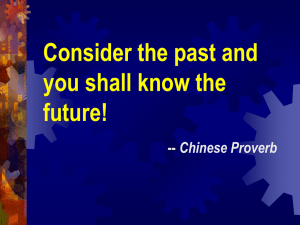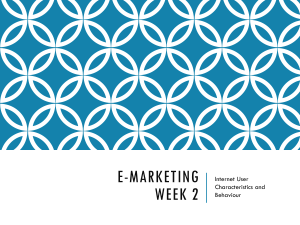A technological skeptic
advertisement
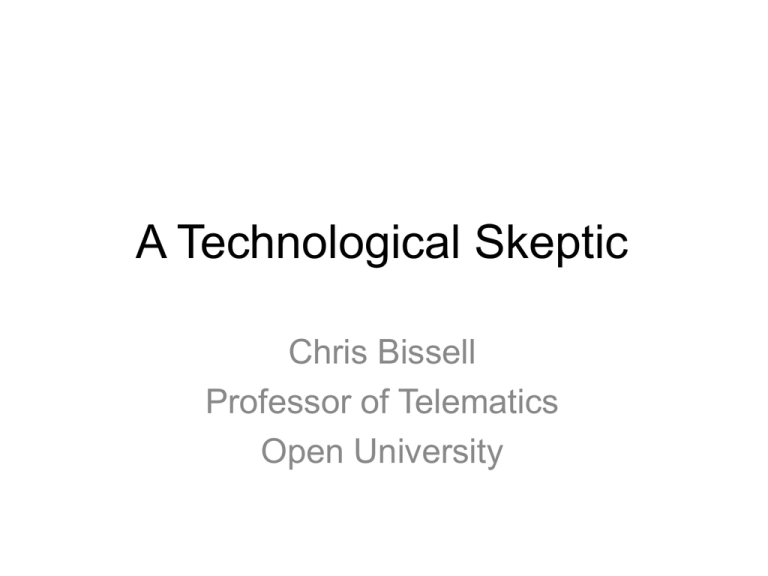
A Technological Skeptic Chris Bissell Professor of Telematics Open University Telematics? • French in origin • Combination of French words for telecommunications and computer science • Word never took off in English • So, it’s really ICT • But should a Prof of ICT be skeptical about technology? … well, it’s my job! This brief talk will • Outline some models of the way technology and society interact • Look at some historical claims for revolutionary technologies (I’m a historian of technology) • Adopt a skeptical approach to overly technical solutions • At first this may not seem to have much to do with this Workshop, but please bear with me for a few minutes … A naïve model • Science -> Technology -> Social change – Theory of electricity -> Power stations -> … • “Technological determinism” … “Autonomous technology” • Agreed by vast majority of contemporary scholars as far too simplistic … but • Still widely believed in politics, media, etc • For example, you simply need to roll out technology (one PC per class; one laptop per child; an iPhone for every housebound person;) … And all will be well! Social shaping of Technology / Social Construction of Technology • Movements dating back to 1970s • Important conference in Twente, The Netherlands, in 1985 • General notion that technological developments cannot be divorced from social context which at least shapes them, at most is heavily involved in coconstructing them • Opposed to technological determinism Technological Utopias 1 Achievements of science: the power it bestows on mankind. – Illustrations of the energy and adaptation of steam in subserving human purposes: its applications and benefits. – Locomotion by steam: its effects in developing enterprise. - Electricity: its probable destination as a channel of intelligence: general ideas of its power as an agent of communication. - The electric telegraph: its wonderful properties; annihilates time; unaffected by position Michael Angelo Garvey, 1852 Technological Utopias 2 An agent was at hand to bring everything into harmonious cooperation ... triumphing over space and time ... to subdue prejudice and to unite every part of our land in rapid and friendly communication; and that great motive agent was steam. Charles Fraser, addressing the Mercantile Library Association of Charleston, South Carolina Technological Utopias 3 God and man have linked the nations together. No nation can longer be indifferent to any other. And as we are brought more and more in touch with each other, the less occasion is there for misunderstandings and the stronger the disposition, when we have differences to adjust in the court of arbitration, which is the noblest forum for the settling of international disputes. President McKinley, at the Pan-American Exposition, Buffalo, September 1901 If not steam and electricity, then … • TECHNETRONICS! (Zbigniew Brzezinski, 1970) – greater devolution of authority – massive diffusion of scientific and technical knowledge as a principal focus of American involvement in world affairs – the elimination of the “twin insulants of time and space” – reduction of social conflicts [...] and a move to a pragmatic problem-solving approach to social issues So, let us be cautious More recently, analysts have tended to highlight what they see as a radical transition from an industrial society to a postindustrial, or information, society brought about through the actions of the digital computer and the internet. In this context, some economists have developed the idea that economic history has been shaped by a few ‘general-purpose technologies’. The central ones are successively steam power, electricity and now ICT. How seriously should we take these claims for these technologies, and for their significance in these particular periods? The answer is that such accounts, for all that they reflect what we think we know, are not as well founded as might be supposed. David Edgerton, The Shock of the Old, 2006 But you can’t deny the information revolution, surely! • Beware of revolutionary talk! • We’ve already seen some of the claims for steam and telegraphy • Even canals were thought of as revolutionary in their day • Technology changes; society changes; technology and society interact; it’s a complex business Tales of the unexpected: technological changes are highly unpredictable • SMS (texting): never intended as a consumer tool • Telephone: never intended for social chat (isolated women in rural America reprimanded by telephone companies) • Internet: from defence network to YouTube, Facebook and Twitter An age divide? • ‘Digital natives’ versus ‘digital immigrants’ • A ‘net generation’ • Anecdotal evidence and a recent research project demonstrates there are many – Older ‘early adopters’ – Younger ‘sparse users’ • Generalisation is dangerous! What is really new? • the new technologies give users the means to generate, seek, select, obtain, modify, and share content on a scale that does seem to be different from earlier technologies • there are distinct ‘postmodern’ aspects to this: erosion of authority; the decline of the ‘canon’ and the ‘grand narrative’; a certain ‘relativism’ What is really new? • there is a significant blurring of the public and private, both in the use of hardware and in the software of social networking sites – for example, the increasing use of such media as YouTube, Facebook and Twitter by government, educational institutions and private companies • the danger of the ‘cult of the amateur’, in which the traditional professional expertise of journalists, editors, librarians, academics, etc., is called into question or bypassed Discussion points • The novel features of the ‘new technologies’ are just as important to older people as to other sectors – both positive and negative aspects • There is a danger of technological determinism – successful technology for older people must stress user involvement in design, even co-construction Discussion points • ICT for older people: How much education, how much adaptation? • If adaptation, software and / or hardware? • The manufacturer side – Market size – What’s in it for them? – Bespoke solutions? – User control of adaptation
